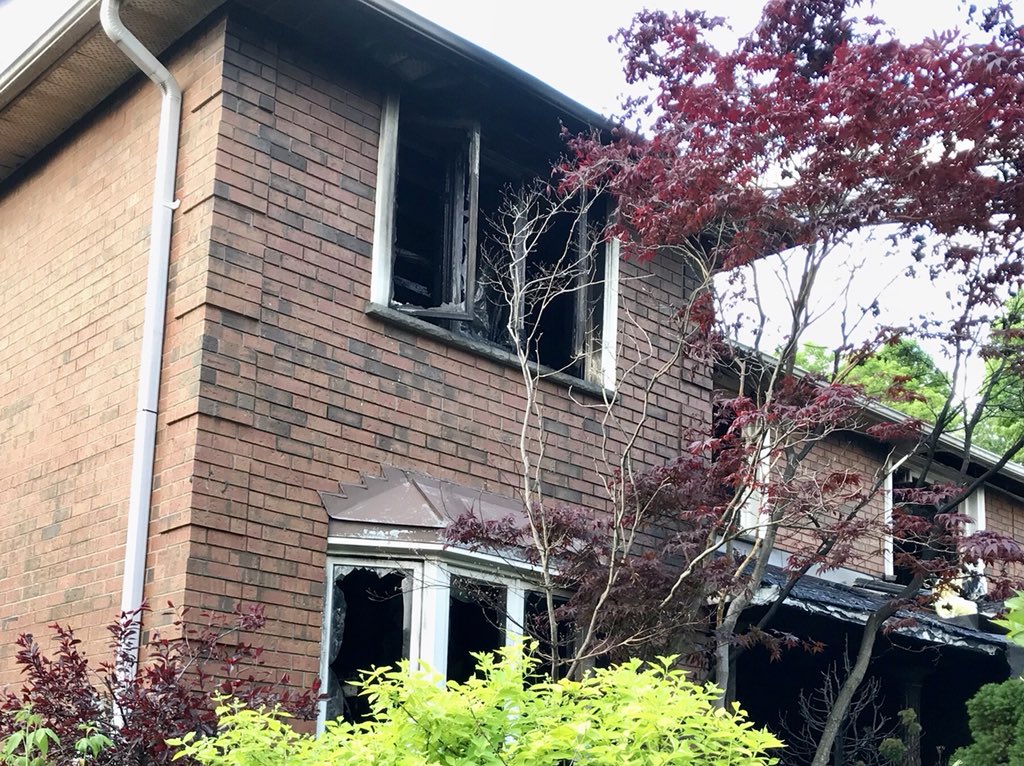Marla Friebe of Toronto Fire Services warns students not to comprise their safety for cheaper rent
On May 30, 2018, Helen Guo lost her life due to an illegal rooming house fire.
She was an 19-year-old international student at the University of Toronto (U of T), Scarborough campus.
The landlords of the rooming house were each charged with nine counts of arson by negligence and one count each of criminal negligence causing death as well as criminal negligence causing bodily harm, according to a Sept. 2018 article from Toronto Star.
“People’s lives are in jeopardy, and that’s a heavy burden to carry for the rest of your life,” said Marla Friebe, the acting division chief of public education and professional standards for Toronto Fire Services (TFS).
In light of recent rooming house fires, including one from February in Parkdale that injured two people, Friebe shared what every student should know about fire-safety while renting their first off-campus housing.
1) Make first safety a priority
Students should look past the price point when it comes to off-campus housing, said Friebe. Remember, fire-safety is important. Before moving in, ensure there are at least two exits from the apartment on each floor. This can include a door and a window that is not barred and can be easily opened.
2) Always check for smoke alarms
Ensure there’s a working smoke alarm on every level of the building they are in, and test them every month. If the alarm is battery-powered, make sure that the batteries are working properly on a regular basis.
3) Get a carbon monoxide detector
Carbon monoxide is a an invisible killer because it cannot be tasted, seen, or smelled. “The only thing that’s going to detect carbon monoxide is a carbon monoxide alarm,” she said.
For this reason it’s essential to have a working carbon monoxide detector in every home that uses fuel-burning appliances, Friebe explained.
Fuel burning appliances include gas stoves, gas dryers, gas furnaces, or even an attached garage where people park their cars.
4) Know the main causes of residential fires
According to Friebe, the top four reasons for house fires are unattended cooking, careless smoking, candle use, and general electrical mistakes such as using power-bars without surge protectors.
Landlords should make sure electrical outlets are safe and that there are enough electrical outlets in each person’s room to avoid the running of extensions cords.
5) Learn how to extinguish grease fires
Remember to never use water to put out grease fires. Instead, put a lid on the fire and turn the stove off, Friebe said.
Many students encounter issues with trying to extinguish a stove-top grease fire, said Friebe, explaining that nobody should ever try to carry an ignited pan outside.
“A lot of students do that. They’ll try to pick up a burning hot pan and take it out to a balcony or take it outside,” she said. “And in doing so they end up burning themselves or dropping that hot pan full of oil and igniting something else within the home.”
If you don’t have a lid, leave the fire in place, let everyone in the house know there is a fire, then call 911 once everyone is outside.
She said the best fire extinguisher for a tenant to have in their home is a multipurpose ABC extinguisher.
All stairwell doors in an apartment should have self-closing devices installed on them, according to Friebe, and all doors and windows on the property should open and close easily in case someone might have to escape a fire.
She also noted that landlords should do fire-safety drills with their tenants and that TFS would be happy to do an education session with student tenants.
6) Make a fire escape plan
Everyone needs to know how to escape a fire if they have one. If there ever is a fire, everyone living in the home should know how they will evacuate from the building.
“They need to have a plan in place, they need to know where their closest exit is, that when they leave their room they should be shutting the doors behind them. That basically will isolate smoke and flame, and also prevent smoke and flame from entering their bedroom, should the fire be on the exterior,” she said.
In the event of a fire to immediately go to the closest exit. If there’s a lot of smoke, get closer to the floor where the air is cleaner and continue to the exit. She added that the tenant should stay on site until the fire department arrives.
7) Teach others about fire safety
“We have a lot of multicultural students coming to study in Toronto, and we assume that everybody understands that they need to call 911 for the TFS. Not everybody knows that,” Friebe said.
For tenants who do not speak English as their first language, she suggested going to the TFS’s website to download their fire-safety information as it has been translated into the top 10 languages spoken in Toronto.
Friebe hopes that in light of the 2018 Scarborough fire that took the life of a U of T Scarborough student, landlords will be more pressured to get their building up to code.
“We’re looking at protecting lives, that’s what our job is with Toronto Fire Services, and it’s much easier just to fall in line with what we’re asking than to potentially put someone’s life at risk,” she said.


